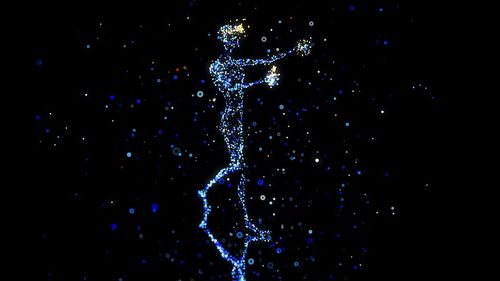

Paradoxurile interacţiunilor noastre cu necunoscuţii
08 February, 2024
Distribuie acest articol
Cuprins
Suntem expuşi zi de zi la contactul cu necunoscuţi – pe stradă, la evenimente publice sau private, la birou şi chiar acasă, aşa cum experimentăm din plin în contextul work-from-home. Se spune că telemunca ar afecta, într-o oarecare măsură, comunicarea, că ne este mai greu să citim oamenii de la distanţă, fără contact direct. Să fie oare chiar aşa?
În cartea „De vorbă cu necunoscuţi”, renumitul Malcolm Gladwell îşi propune să elucideze o dilemă stresantă, aceea a modului adesea distorsionat în care ne traducem gesturile şi cuvintele străinilor care ne ies în cale.
Deşi dispunem incontestabil de anumite instrumente ce ne pot semnala corect mesajele subtile emise de ceilalţi, lectura ne arată că oricare dintre noi putem comite erori serioase în contactul cu persoane care nu se încadrează în stereotipurile noastre.
Pornind de la gafe memorabile de acest gen, cartea oferă o demonstraţie a mecanismelor care ne fac incapabili în descifrarea vorbelor şi intenţiilor celor din jur.
Când credem prea mult sau prea puţin în necunoscutul de lângă noi
Paradoxal, cei care nu s-au înşelat în privinţa lui Hitler au fost cei care ştiau cel mai puţin despre el în urma unui contact personal, arată Gladwell.
Ana Belén Montes, una dintre cele mai mari spioane cubaneze din istorie, a reuşit să se infiltreze timp de ani de zile în biroul pentru America Latină din Defense Intelligence Agency SUA, în calitate de expertă în problemele Cubei.
Deşi la un moment dat a stârnit bănuieli unui coleg care o cunoştea foarte bine, tocmai faptul că îi ştia personal rezultatele şi conduita excepţională l-au făcut să se îndoiască de ceea ce îi dicta raţiunea în privinţa ei. O ezitare care a costat mult.
Dar problema străinului necunoscut poate degenera la fel de grav şi dacă proiectăm asupra lui cele mai sumbre suspiciuni. De altfel, cartea porneşte şi revine la final la un astfel de caz, cel al Sandrei Bland.
Confruntarea dintre o tânără afro-americană şi un poliţist mult prea bănuitor a sfârşit tragic din cauza lipsei totale de încredere în necunoscuta pe care poliţistul a perceput-o ca fiind discrepantă în raport cu stereotipurile lui.
Cum ajungem să ne creăm imagini distorsionate despre ceilalţi?
- „Suntem presetaţi pentru adevăr” – aceasta este una dintre observaţiile fundamentale construite în paginile cărţii. În mod natural, cei mai mulţi dintre noi pornim de la presupoziţia apriorică a sincerităţii oamenilor cu care venim în contact. De aceea, „când un mincinos se comportă ca un om cinstit sau când un ins onest se poartă ca un mincinos, suntem confuzi”. Ajungem astfel să trecem cu vederea comportamente discutabile, să găsim scuze unor şarlatani şi să nu îi confruntăm deschis.
Iar dacă facem parte dintre cei minoritari şi, dimpotrivă, sfidăm presupoziţia apriorică a sincerităţii, ne lovim de pericolul altor distorsiuni, chiar dacă am tradus corect că străinul de lângă noi este un impostor.
Harry Markopolos, un anchetator independent de fraude financiare, a fost primul care a deconspirat cea mai mare operaţiune investiţională piramidală frauduloasă (schemă Ponzi) din lume. Totuşi, nu a reuşit să se facă auzit din timp de autorităţi pentru că a ajuns să creadă, nefondat, că viaţa lui era în pericol şi a ezitat să furnizeze dovezile de care dispunea.
- Distorsionăm imaginea străinului de lângă noi şi pentru că pornim de la ipoteza transparenţei: când nu avem suficiente informaţii despre oameni, credem că îi putem descifra studiindu-le comportamentul şi expresiile faciale. Totuşi, ca în cazul Sandrei Bland, ne dovedim a fi traducători slabi atunci când întâlnim persoane care, pur şi simplu, nu corespund reperelor noastre despre diverse gesturi şi mimici.
Ce avem de învăţat din „De vorba cu necunoscuți?
- Poate că cea mai valoroasă învăţătură a cărţii este aceea că trebuie să fim atenţi la realitatea străinului de lângă noi înainte de a trage concluzii la adresa lui. Trebuie să ne întrebăm care este contextul pentru el, în cel fel locul şi momentul întâlnirii noastre îi pot influenţa comportamentul.
- „Am crezut mereu în tine până când nu am mai putut să cred.” Când ajungem la astfel de adevăruri, când cunoscutul sau necunoscutul de lângă noi se dovedeşte totuşi a fi un impostor, este foarte important să nu ne învinovăţim pentru că am presupus aprioric sinceritatea. Deşi ne putem păcăli în privinţa onestităţii celorlalţi, este bine să reţinem că presupoziţia apriorică a sincerităţii ne ajută să construim contacte sociale semnificative şi că, per ansamblu, este o cale eficientă. „Societatea nu poate funcţiona altcumva.”
- În cele din urmă, este nevoie să acceptăm limitele capacităţii noastre de a-i descifra pe necunoscuţi. Cu toate că dispunem de indicii care ne ajută să intuim cine sunt străinii de lângă noi, trebuie să-i studiem cu atenţie înainte de a-i eticheta într-un mod sau altul, pozitiv sau negativ.
„De vorbă cu necunoscuţi” îndeamnă la vigilenţă şi rezervă, dar şi la păstrarea unui grad potrivit de disponibilitate afectivă faţă de străinii cu care venim în contact. Doar aşa putem rămâne echilibraţi în reţeaua atât de dinamică şi complexă a interacţiunilor noastre de zi cu zi.
Tu cum îi abordezi pe necunoscuţii care îţi ies în cale?
Descoperă alături de noi cărțile de dezvoltare profesională și personală, care ne inspiră și ne aduc mai aproape de bune practici și noi modele de lucru, implementate cu succes.
Recenzie realizată cu sprijinul Bookster
Rămâi la curent cu cele mai recente articole, evenimente și tot ce Pluria are de oferit
Prin abonarea la newsletter, ești de acord cu politica noastră de confidențialitate

În ritmul tot mai solicitant al vieții moderne, stresul cronic a devenit unul dintre cei mai nocivi factori care afectează societatea la scară largă.
În fața acestei provocӑri, avem două opțiun[...]
08 February, 2024

Conceptul de coworking, așa cum îl cunoaștem astăzi, este unul recent, care însă a evoluat într-un ritm accelerat și continuă să o facă. Aceasta înseamnă că ne numărăm printre cei ce scriu în prezen[...]
08 February, 2024

Indiferent câți ani au trecut de la ultima acreditare pe care ai obținut-o în meseria ta și de experiența acumulată între timp, evoluția profesională este un proces bazat pe învățare continuă.
[...]
08 February, 2024